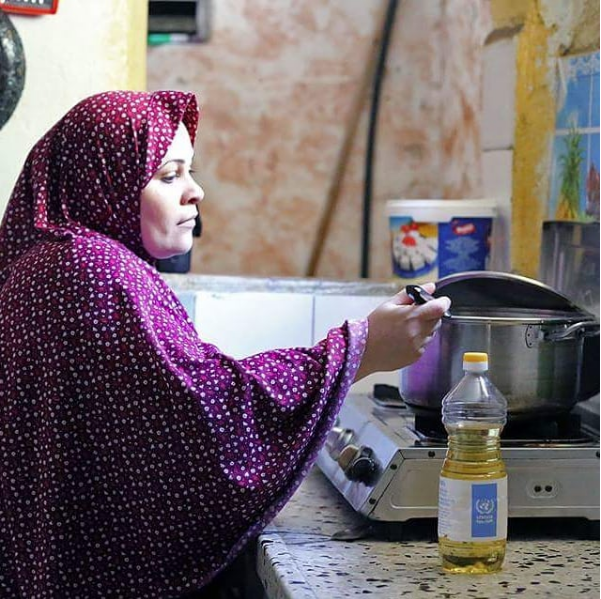IN THE MEDIA
Others should also defund UN relief agency
October 3, 2018 | Ahron Shapiro

An edited version of this article appeared in the Herald Sun, October 1 2018
The Trump Administration announced last month it would cease funding the United Nations Relief and Works Agency for Palestine Refugees in the Near East (UNRWA) and divert US humanitarian aid through other channels. While some may present this as a radical move by an unpredictable US Administration, in fact it makes sense in advancing the welfare of Palestinians and the pursuit of peace. Indeed, Australia and other donor countries interested in encouraging a genuine two-state resolution should seriously consider following suit.
Calling UNRWA an “irredeemably flawed operation”, the State Department cited “UNRWA’s endlessly and exponentially expanding community of entitled beneficiaries” as the primary impetus for the decision – a reference to the organisation’s “simply unsustainable” policy of adding to its rolls every descendant of the original Palestinian refugees from the 1948 war, in perpetuity.
This, of course, is in stark contrast to the rules guiding how the world handles all other refugees under the UN refugee agency (UNHCR), which does not consider refugee status to be an inherited quality.
In truth, the US could have cited any number of problematic aspects of UNRWA, such as its allegiance to the legally baseless so-called Palestinian “right of return”, which aims to demographically undermine Israel’s right to exist, and hugely complicates any effort to negotiate a two-state Israeli-Palestinian peace.
Or the US could have pointed to the examples of antisemitism and incitement to violence against Israelis in countless UNRWA school textbooks, or the repeated use of UNRWA facilities to store Hamas weapons in Gaza.
Even if UNRWA were not hopelessly politicised, its policies ensuring perpetually increasing budget demands from donor countries would eventually have led to a financial impasse.
While UNHCR ameliorates the plight of its refugees over time through resettlement programs, the number of Palestinians UNRWA registers as a “refugee” has ballooned from an estimated 700,000 in 1949 to some 5.4 million today, and that number grows daily.
Wars around the globe have pushed UNHCR’s own case load to 19.9 million current refugees, yet UNRWA still consumes almost three times the manpower of UNHCR. But UNHCR resettled 102,800 people last year – UNRWA resettled none.
Meanwhile, around 40% of Palestinians registered as refugees by UNRWA actually live in what Palestinians themselves call “historic Palestine”, ruled by either the Palestinian Authority or Hamas. Of those, 800,000 Palestinians still reside in the more than 25 UNRWA refugee camps in the West Bank and Gaza.
The obvious question then must be why the PA and Hamas don’t provide welfare, education and healthcare services for these Palestinians, as they do for other West Bank and Gaza inhabitants.
Meanwhile, UNRWA also provides services to more than 2 million registered Palestine refugees who live in Jordan, and administers 10 camps there. Yet the large majority of those refugees have Jordanian citizenship – and would definitely not be refugees according to UNHRC because they have citizenship of their country of residence. Again, just as it provides these services to all other Jordanian citizens, Jordan should be providing services to these Jordanian citizens, not UNRWA.
UNRWA’s refusal to dismantle the camps after 70 years, and refusal to help resettle any refugees, can only be understood in the context of the role refugee status and the claimed “right of return” have played in Palestinian nationalism.
Refugee resettlement is not only discouraged but vehemently opposed by both UNRWA and Palestinian leaders at the expense of Palestinians – many or most of whom would, frankly, rather be resettled and move on with their lives than be used as perpetual political pawns, kept generation after generation in UNRWA camps.
When for example, in 2009, the US resettled 1,350 Iraqi Palestinians who had rejected subjugation to UNRWA’s anti-resettlement policies, the Wall Street Journal reported that “Ziad Asali, president of the American Task Force on Palestine, a Washington advocacy group, applauded the US decision… However, Mr. Asali [also] cautioned that it [was] bound to irk Palestinian and Arab leaders who interpret US willingness to resettle Palestinians… as ‘a conspiracy to liquidate the Palestinian refugee issue.’”
The episode highlights that Palestinian leaders see the camps full of refugees as political leverage in their conflict with Israel.
While the Palestinian desire to preserve the UNRWA bureaucracy may well serve their leaders’ cynical political interests, it is harder to justify continued foreign aid investment in UNRWA’s bottomless pit of conflict expansion ad infinitum.
The State Department has stressed that its funding cut to UNRWA is not intended to negatively impact the lives of Palestinians in need, nor should it. The redirection of funding for UNRWA to alternative service providers must be handled with caution and compassion to ensure that needy Palestinians are not deprived of essential health, education and other services that UNRWA has provided until now, and the US has not yet indicated which organisations will serve this role.
Meanwhile, wealthy Arab countries, many of whom shaped the anti-resettlement policies of UNRWA, have been invited to alleviate UNRWA’s shortfall.
To this end, Jordan is hosting a conference to solicit more aid for UNRWA while the organisation’s supporters in Europe are appealing to other Western donors to rescue the cash-strapped agency.
Australia, which gives some A$20 million annually to UNRWA, should instead consider joining the US in directing our foreign aid to the Palestinians to best serve the interests of peace.
AHRON SHAPIRO IS A SENIOR POLICY ANALYST AT THE AUSTRALIA ISRAEL & JEWISH AFFAIRS COUNCIL
Tags: Australia, Israel, Palestinians, United Nations, UNRWA





